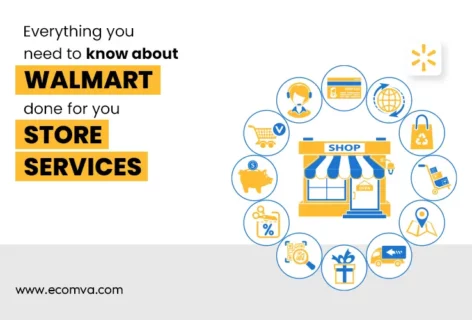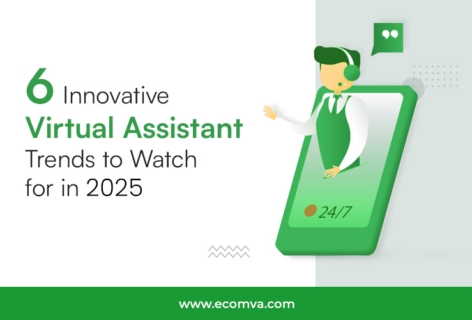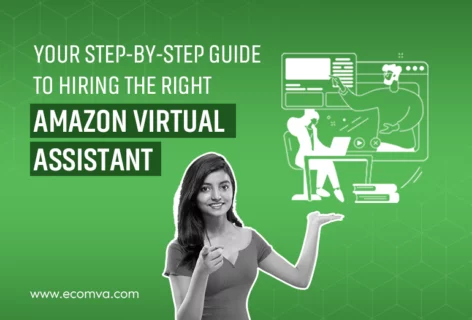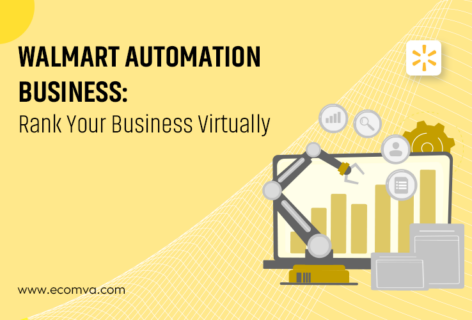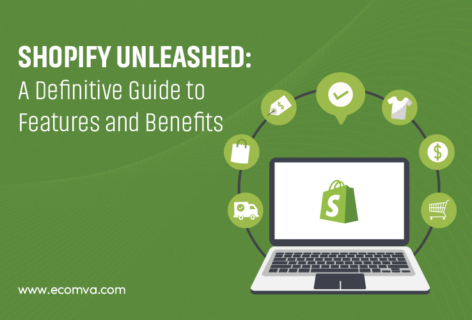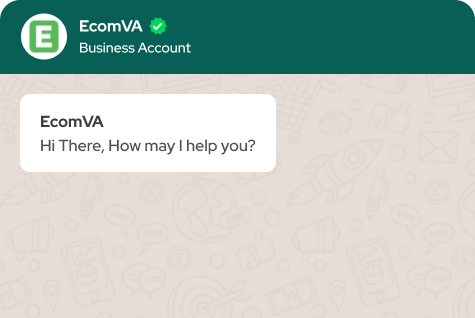Dropshipping Vs. Amazon FBA – Which Is Better For Your Business?
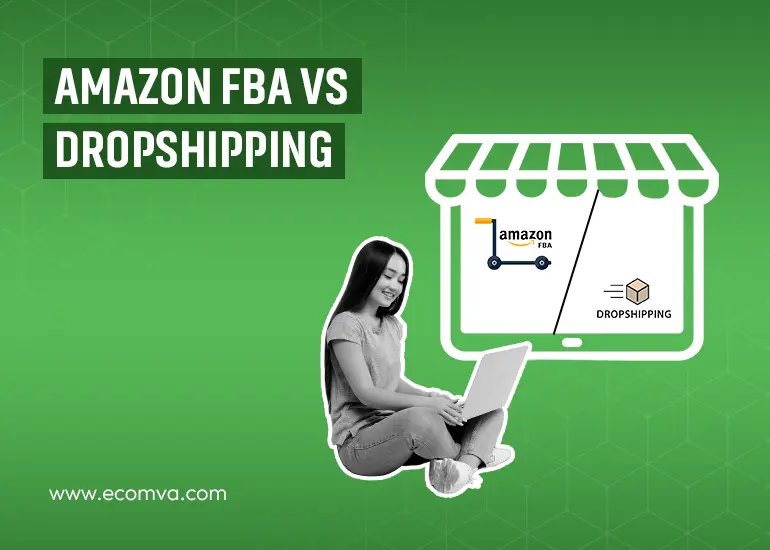
Do you want to sell on Amazon, but are stressed because of the fulfillment options? You are not alone in this. Many new sellers do not know what to choose between Fulfillment by Amazon (FBA) and Fulfilled by Merchant (FBM). Dropshipping is also an attractive low-cost option under FBM. Should you hire an Amazon FBA expert or a dropshipping specialist? This blog will look at both FBA and dropshipping from different angles, outlining their pros and cons so that you can make a decision based on the right information.
What is Dropshipping?
Dropshipping is a retail business model where the retailer does not need to keep inventory. Instead of buying products and then selling them, the dropshipping business owner places the order with a third party that directly ships it to the customer. This way, the seller never has to handle the product physically.
Advantages of Dropshipping
- Low startup capital: This is because dropshipping does not require you to acquire the products before you start selling them. Hence, this significantly reduces your initial costs. You only pay for the products after you have already sold them, thus making it a low-cost way to start an online business without a huge financial commitment.
- No need for warehousing: Since you do not manage physical products, there is no point in investing in warehouses. This would save money on storage fees, staff, and on ecommerce inventory management systems. Thereby, it reduces complexity and allows more direct control over operational costs.
- Wide range of products: Diverse product offerings are possible without physical inventory restrictions. Therefore, you can sell a wide variety of products that would enable you to easily adapt to market dynamics and customer needs. Also, there will be no concern for overstock or dead stock.
- Flexibility: An online dropshipping business can be managed from any location with an internet connection due to the high flexibility. Such a business is suitable for people on the move such as digital nomads who prefer to have a location-independent lifestyle.
Disadvantages of Dropshipping
- Lower profit margins: When you buy items one at a time instead of in bulk, it costs more for each item. This can lead to reduced profit margins, which are less than that in other types of businesses where bulk purchasing reduces the cost per unit.
- Inventory issues: When you rely on suppliers for inventory, it means that you are also relying on their stock levels. If a supplier runs out of stock, it can lead to delays and backorders, ultimately leading to dissatisfaction among your customers and lost sales. Here, you can get help from an ecommerce virtual assistant and effectively manage inventory.
- Less control: When involved in a dropshipping business, you do not have control over many things, like the quality of products, when they will be shipped, how long it will take them to reach your customers, and return policies. When the suppliers fail to meet your expectations (which could affect customer satisfaction), there is no way that you can save your brand’s reputation.
What is Amazon FBA?
Amazon FBA (Fulfillment by Amazon) is a service that Amazon offers for business entities to store their products in the Amazon fulfillment centers. After this, Amazon takes charge of picking, packing, shipping, as well as customer service.
Advantages of Amazon FBA
- Prime eligibility: Products fulfilled through Amazon FBA qualify for Amazon Prime which in turn offers customers fast and free shipping. A large number of people favor Prime-eligible products for the ease and speed of delivery. This greater exposure has the potential to result in better sales and customer satisfaction. A robust reason to hire an Amazon FBA virtual assistant for your business!
- Customer trust: Amazon’s reputation for reliable services is extended to your products. When customers find out that Amazon is handling the fulfillment, they are more likely to have faith in your products and buy them. This not only improves your sales figures but also enhances your brand’s credibility.
- Storage and shipping: When it comes to storage and shipping, Amazon and Amazon dropshipping virtual assistants have you covered with warehousing, picking, packing, and delivery of your items. Not only does this save you time and energy but it eliminates the need for substantial investment in a logistics setup. Moreover, you can direct your attention towards business expansion while Amazon oversees the operational nitty-gritty.
- Amazon FBA shipment management: The use of Amazon’s vast logistics network can be one smart way to make sure the Amazon FBA shipment is taken care of effectively and in a reliable manner. It leaves you free to grow your business without having to worry about how to deal with all the complications that come along with both shipping and delivery logistics.
Disadvantages of Amazon FBA
- Costs: The charges linked with Amazon FBA might pile up rapidly. They include storage fees based on the volume of inventory, fulfillment fees per unit sold, and long-term storage fees for unsold items. These costs can impact your profit margins if not carefully managed.
- Inventory management: Ecommerce inventory management through Amazon’s various fulfillment centers is not a walk in the park. You need to ensure appropriate stock levels which will prevent you from being overcharged on storage fees as well as avoiding stock-outs. This task demands strategic preparation and consistent monitoring.
- Limited branding: The strength of Amazon is its standard packaging, but this also means you lose the ability to create a unique brand experience. It doesn’t allow you to implement custom packaging or inserts that would strengthen your identity and increase customer loyalty.
Things to consider when making the choice
Profit margins
Dropshipping typically has lower profit margins compared to Amazon FBA. This is due to the high costs of products in addition to the level of competition.
Conversely, Amazon FBA can potentially yield higher profit margins since purchasing in bulk decreases the cost per item. Moreover, premium prices for Prime-eligible products contribute to greater revenue. Nonetheless, the fees associated with Amazon FBA can eat into these margins, so careful management is essential. You can hire an Amazon FBA virtual assistant for the right management.
Control over the supply chain
If businesses are seeking absolute authority over their supply chain, Amazon FBA could emerge as the preferred choice. An Amazon FBA expert can keep a close check on the levels of inventory, guarantee the standard of the product, and handle returns with better efficiency through Amazon FBA
On the other hand, dropshipping significantly relies on suppliers. This in turn can result in complications related to product quality as well as stock availability and shipment timings.
Shipping and logistics
The ways shipping and logistics are handled also vary significantly between dropshipping and Amazon FBA. For dropshipping, the supplier handles shipping directly to the customer which can lead to variability in shipping times as well as quality.
With Amazon FBA, Amazon takes care of shipping, offering reliable and fast delivery through its extensive logistics network. This online store management consistency can lead to more satisfied customers that return for more business later on, due to their trust in timely delivery.
Scalability
Taking a dropshipping business to new heights, by itself, is easily attainable since there’s no need to be concerned with inventory control or warehousing management. New products can be added to your online store without large upfront costs. But as you expand, keeping tabs on several suppliers and guaranteeing uniform quality can spiral into their own challenges.
Amazon FBA offers robust support for scaling, as Amazon’s infrastructure can handle increased sales volumes. However, successful scaling with Amazon FBA demands meticulous inventory planning and control. This is to prevent storage fees and stockouts. However, using Amazon FBA tools as well as engaging the most competent Amazon virtual assistant helps in the proper management of these intricacies.
Customer service
Another crucial factor to take into account is customer service. In a dropshipping setup, the responsibility of customer service majorly falls on you. However, the handling of shipping-related issues and product quality by the supplier can pose challenges to your customer management.
Amazon FBA has customer service within the scope of its services. This means Amazon takes care of dealing with customers’ inquiries, returns, and refunds which indeed can drastically cut down your workload while ensuring a better customer satisfaction rate. This is where an Amazon Seller Central virtual assistant can be particularly useful, helping you navigate Amazon’s customer service processes.
Branding and marketing
Marketing and branding are crucial in developing a successful ecommerce business. When it comes to dropshipping, you have more control over branding because you manage your website and packaging.
This allows you to create a unique brand experience for your customers. Marketing is, however, entirely up to you, and it can be quite a challenge to direct traffic to your store. For this, you can hire virtual assistant.
The exposure your products get on Amazon’s platform can be of help even though, with Amazon FBA, branding opportunities are limited because Amazon takes care of packaging and shipping.
Marketing on Amazon involves three main components:
- Optimizing product listings
- Using Amazon PPC
- Using Amazon promotional tools
This is where an expert in Amazon FBA comes into the picture to help you manage your marketing campaigns effectively by optimizing your listings.
What Role Does eComVA Play in Each Model?
Our virtual assistants can play a crucial role in both dropshipping and Amazon FBA businesses. For dropshipping, a virtual assistant can manage tasks including but not limited to product research, listing optimization, order processing, and customer service. Specific platforms can be streamlined by an eBay dropshipping virtual assistant or an expert on Walmart dropshipping automation.
In the case of Amazon FBA, a virtual assistant can be involved in managing inventory, taking care of customer service, working on listings’ optimization, as well as conducting advertising activities. Hiring the best Amazon virtual assistant can help you ensure your business is not only up and running but also thriving amidst all complexities.
The Choice is yours at the end!
Your decision to choose between dropshipping and Amazon FBA should be based on your business goals, available resources, and preferences. Although dropshipping has very low startup costs, it is a quite flexible ecommerce operation. However, you will have minimal control over the supply chain and this could lead to low profit margins.
On the other hand, with Amazon FBA you are assured of reliable shipping which in turn leads to higher profit margins. Additionally, you can enjoy excellent customer service. But keep in mind that this comes at a cost, and it involves more complex inventory management.
With the right tools and virtual assistants, you will be able to make a decision that is aligned with your business goals.

